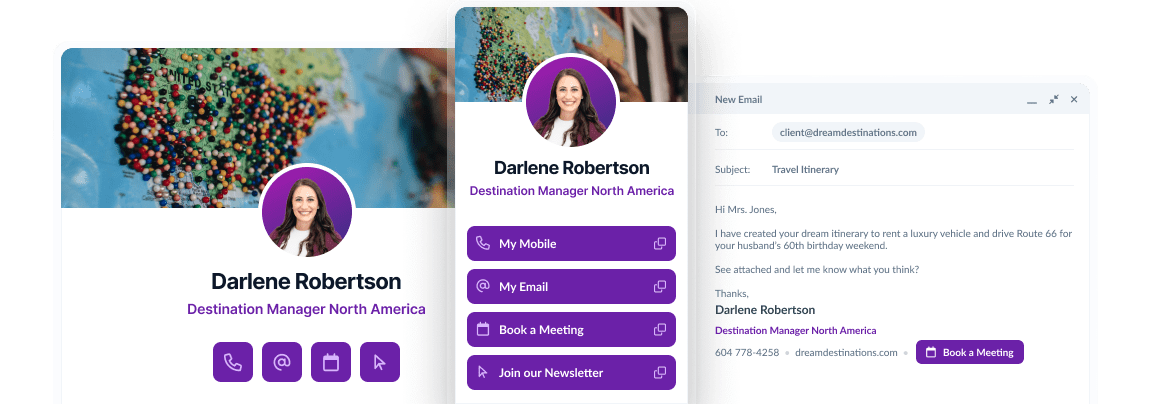For a small business, and particularly an online small business, the launch of your website is effectively your "Grand Opening." If you don't have a physical location, there will not be balloons at the door or an ice cream truck in the parking lot, so your company's digital debut is even more important to celebrate as you announce to the world that you are open for business. However, there are many decisions that need to be made before you can turn the lights on so to speak, and one of the first questions you will need to answer is "what is the best website provider for my small business?"
Good news, bad news
The good news is there have never been more options available to you as a small business in search of a website platform. You can find everything you need to get your business online without ever needing to talk to a person–that's great. The bad news is you actually have an overwhelming number of platforms to choose from, and you will need to make a decision quickly so that you can get moving on things that take time, like branding your small business, copywriting, graphic design and much more. Here are some popular platforms to consider when looking for a small business website provider.
Squarespace
Squarespace is a popular website platform known for its modern, sleek designs and user-friendly interface. It’s a great option for businesses in the creative space, such as artists, photographers, and designers. Squarespace also offers ecommerce features, making it suitable for small online stores.
Pros:
- Beautiful, customizable designs
- Intuitive drag-and-drop interface
- Excellent ecommerce features
Cons:
- Limited third-party integrations
- Limited customization options compared to other platforms
- Relatively high pricing compared to other platforms
Suggested for: Small businesses in the creative space, with a focus on visual content and ecommerce
Wix
Wix is another popular website platform that offers a wide range of templates and designs. It’s a good option for businesses that need to get a website up and running quickly, without having to deal with a lot of customization.
Pros:
- Wide range of templates and designs
- Easy to use drag-and-drop interface
- Affordable pricing options
Cons:
- Limited customization options
- Limited ecommerce features
- Templates can be too rigid for some businesses
Suggested for: Small businesses that need a website up quickly and affordably, without requiring too many customizations or ecommerce features.
Weebly
Weebly is a website platform that’s been around for a while and is known for its simplicity and ease of use. It’s a great option for small businesses that want a simple, no-frills website, and its 2018 acquisition by payments giant, Square, means that its ecommerce capabilities will likely be highly competitive for years to come.
Pros:
- Simple, intuitive interface
- Affordable pricing
- Excellent ecommerce features
Cons:
- Limited customization options
- Limited templates compared to other platforms
- Limited SEO capabilities
Suggested for: Small businesses that want a simple, easy-to-use website with good ecommerce capabilities, but don’t require a lot of customization or SEO optimization
Wordpress
WordPress is a content management system that powers over 40% of the internet. It’s a versatile platform that can be used for a wide range of websites, from blogs to ecommerce sites.
Pros:
- Highly customizable with thousands of plugins and themes available
- Excellent SEO capabilities
- Large community of developers and users for support
Cons:
- Steep learning curve for beginners
- Requires regular updates and maintenance
- Limited ecommerce capabilities without additional plugins
Suggested for: Small businesses that require a highly customizable website with strong SEO capabilities, and are willing to invest time and resources in maintenance and updates.
Webflow
Webflow is a newer website platform that offers a unique blend of design flexibility and ease of use. It’s a great option for businesses that require a high level of customization without requiring coding knowledge.
Pros:
- Highly customizable with extensive design options
- Excellent ecommerce features
- Intuitive interface for beginners
Cons:
- Limited third-party integrations
- Limited support options
- Relatively high pricing compared to other platforms
Suggested for: Small businesses that require a high level of design flexibility and customization, but don’t have coding expertise.
Other things to consider
Every small business is different and has its own unique set of circumstances to consider in choosing a website platform. For example, are you using or do you plan to use a customer relationship management (CRM) system? If so, several CRMs (such as Hubspot) also have their own content management system (CMS) that powers websites and might therefore be a good fit for you in terms of platform consolidation and keeping things simple.
Website maintenance and management resources are another consideration. With the exception of Wordpress, all of the aforementioned platforms are fully hosted, meaning that you don't need to have a separate hosting account or be responsible for any updates to the infrastructure or software. But with any website, the content will need to change over time. Sometimes this happens frequently (such as with ecommerce), and sometimes this happens much slower (such as with a bed and breakfast). The reality is, getting your website launched might just be the first step in a long-term commitment, so make sure you do your research to determine which platform will work best for you both now and as time goes on. Sure, you can always change providers down the road, but that is almost always harder and more expensive than you think.
Of course, all of this begs the question as to whether or not your small business needs a website at all. And that is a topic for another post.

Small business marketing that works fast
Whether you are just starting out or already established with customers, NodCards unifies your small business brand across web, mobile, email, search and social. Build instant trust with customers, get seen on search and social media, and turn your emails into slick sales pitches – all from one platform!


